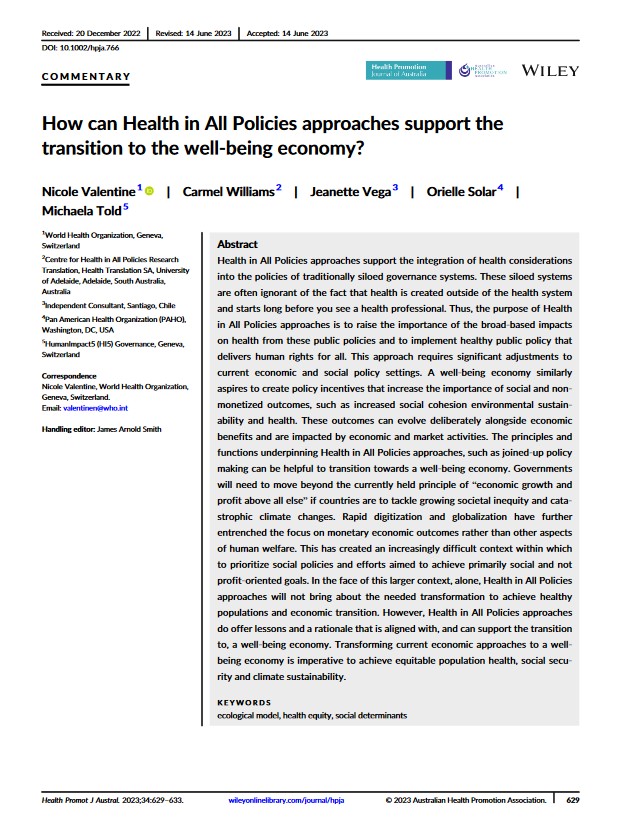The International Journal of Tuberculosis and Lung Disease
Clinical standards for the diagnosis and management of asthma in low- and middle-income countries
Article
01 Sep 2023
Health Promotion Journal of Australia
13 Jun 2023

Health in All Policies approaches support the integration of health considerations into the policies of traditionally siloed governance systems. These siloed systems are often ignorant of the fact that health is created outside of the health system and starts long before you see a health professional. Thus, the purpose of Health in All Policies approaches is to raise the importance of the broad-based impacts on health from these public policies and to implement healthy public policy that delivers human rights for all. This approach requires significant adjustments to current economic and social policy settings. A well-being economy similarly aspires to create policy incentives that increase the importance of social and non-monetized outcomes, such as increased social cohesion environmental sustainability and health. These outcomes can evolve deliberately alongside economic benefits and are impacted by economic and market activities. The principles and functions underpinning Health in All Policies approaches, such as joined-up policy making can be helpful to transition towards a well-being economy. Governments will need to move beyond the currently held principle of "economic growth and profit above all else" if countries are to tackle growing societal inequity and catastrophic climate changes. Rapid digitization and globalization have further entrenched the focus on monetary economic outcomes rather than other aspects of human welfare. This has created an increasingly difficult context within which to prioritize social policies and efforts aimed to achieve primarily social and not profit-oriented goals. In the face of this larger context, alone, Health in All Policies approaches will not bring about the needed transformation to achieve healthy populations and economic transition. However, Health in All Policies approaches do offer lessons and a rationale that is aligned with, and can support the transition to, a well-being economy. Transforming current economic approaches to a well-being economy is imperative to achieve equitable population health, social security and climate sustainability.